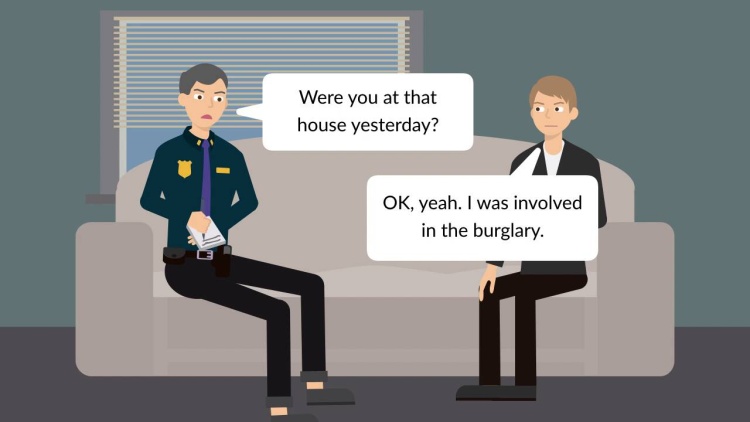Oregon v. Elstad
United States Supreme Court
470 U.S. 298 (1985)
- Written by Sarah Venti, JD
Facts
A home was burglarized, and a witness implicated Elstad (defendant) in the crime. After obtaining an arrest warrant, two officers went to Elstad’s home, where his mother let them inside. While one officer went into the kitchen to explain to Elstad’s mother what was happening, the other officer remained in the living room with Elstad. Without reading Elstad his Miranda warnings, the officer in the living room began talking with Elstad. When the officer said that he believed Elstad was involved in the robbery, Elstad replied, “Yes, I was there.” Once the officers and Elstad arrived at the police station, Elstad was read his Miranda warnings, which he then waived. Elstad then made a full statement implicating himself in the burglary. The statement was put into writing, signed by Elstad, and admitted at trial, where Elstad was convicted of burglary. The court of appeals reversed, holding that the signed confession was inadmissible because it was “tainted” by the initial questioning that occurred without Elstad’s Miranda warnings having been read.
Rule of Law
Issue
Holding and Reasoning (O’Connor, J.)
Dissent (Brennan, J.)
What to do next…
Here's why 907,000 law students have relied on our case briefs:
- Written by law professors and practitioners, not other law students. 47,100 briefs, keyed to 996 casebooks. Top-notch customer support.
- The right amount of information, includes the facts, issues, rule of law, holding and reasoning, and any concurrences and dissents.
- Access in your classes, works on your mobile and tablet. Massive library of related video lessons and high quality multiple-choice questions.
- Easy to use, uniform format for every case brief. Written in plain English, not in legalese. Our briefs summarize and simplify; they don’t just repeat the court’s language.





